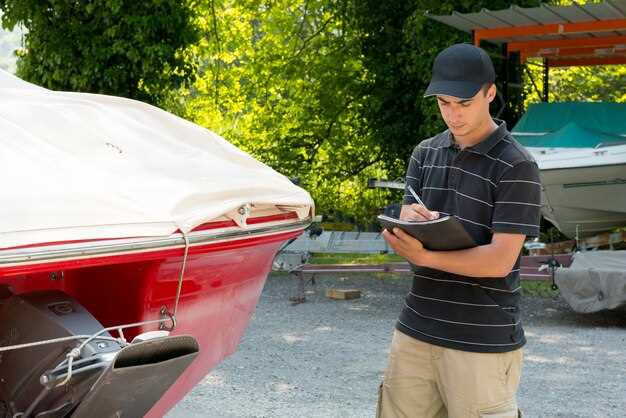
Understanding trailer warranties is essential for any customer looking to purchase or maintain a trailer. A warranty serves as a safety net, providing assurance that the manufacturer stands behind their product and offers service when needed. However, many customers find themselves with questions regarding the specifics of these warranties, including what is covered, the duration, and the claims process.
In this article, we will address the most common questions surrounding trailer warranties. We aim to equip customers with the knowledge necessary to make informed decisions, ensuring they understand their rights and responsibilities under the warranty agreement. From the types of coverage available to the importance of regular maintenance, we will clarify the key aspects that every trailer owner should be aware of.
Whether you’re a first-time buyer or a seasoned trailer owner, navigating the world of warranties can be daunting. This guide seeks to demystify the process and empower customers with clear, concise answers. By the end of this article, you will be better prepared to engage with warranty services and protect your investment effectively.
Understanding Coverage and Limitations of Trailer Warranties

Trailer warranties are essential for protecting the investment customers make in their trailers. These warranties provide coverage for various components and systems of the trailer, ensuring that any manufacturing defects or specific failures are addressed within a designated period. However, it is crucial for customers to understand the extent of this coverage and the limitations that may apply.
Typically, a warranty will cover major components such as the trailer frame, axles, suspension, and electrical systems. Customers should carefully review what specific parts are included in the coverage; some warranties might exclude wear-and-tear items like tires, brakes, and lights, which may require separate protection. Understanding these inclusions and exclusions helps customers make informed decisions regarding their trailer maintenance and potential additional insurance needs.
Another important aspect to consider is the duration of the warranty. Most warranties are time-limited, meaning they only offer protection for a certain number of years or miles traveled. Customers should be aware of when their coverage begins and ends to avoid any lapses in protection. Additionally, many warranties offer tiered coverage levels, which may provide more extensive protection for an additional cost. Evaluating these options can help customers choose the right warranty that aligns with their usage and expectations.
Exclusions and conditions also play a significant role in trailer warranties. Most warranties will not cover damage resulting from improper use, neglect, or unauthorized modifications. Customers must follow the manufacturer’s guidelines for operation and maintenance to ensure their warranty remains valid. Understanding these conditions is crucial for maximizing warranty benefits and preventing unexpected repair costs.
In summary, trailer warranties serve as a safeguard for customers, providing peace of mind regarding their trailer’s performance. By comprehensively understanding the coverage and limitations associated with these warranties, customers can protect their investment and make informed choices about their trailer maintenance and care.
Steps to File a Claim Under Your Trailer Warranty

Filing a claim under your trailer warranty can seem daunting, but understanding the steps involved can simplify the process. Here are the essential actions you need to take:
1. Review Your Warranty Document: Before initiating a claim, carefully read your warranty booklet. This document outlines what is covered, the duration of the coverage, and any specific requirements for filing a claim.
2. Gather Necessary Information: Collect all relevant details, including your warranty number, purchase receipts, and any service records. This information will help the customer service team process your claim efficiently.
3. Contact Customer Service: Reach out to the manufacturer’s customer service department or the dealership where you purchased your trailer. Provide them with the gathered information and clearly explain the issue you are experiencing.
4. Complete Required Forms: Many warranties require you to fill out specific claim forms. Ensure that you complete these accurately and provide any requested documentation to support your claim.
5. Follow Up: After submitting your claim, make a note to follow up with the customer service department if you do not receive a response within a reasonable timeframe. Staying proactive can help expedite the process.
6. Await Approval: Once your claim is reviewed, you will receive a response regarding approval or denial. If approved, instructions for the next steps regarding service or repairs will be provided.
7. Take the Trailer to the Authorized Service Center: If your claim is approved, follow the instructions given by the warranty provider. Take your trailer to an authorized service center for repairs covered under your warranty.
8. Keep Records: Maintain copies of all correspondence, repair orders, and invoices related to your claim. This documentation can be invaluable for any future warranty issues.
By following these steps, you can ensure a smooth claims process under your trailer warranty, helping to address any issues you may encounter with your trailer.
Best Practices for Communicating with Customer Service About Trailer Warranties
When dealing with customer service regarding trailer warranties, clear and effective communication is key to resolving any issues efficiently. Start by gathering all relevant information before contacting support. This includes your trailer’s make, model, and the warranty documentation that outlines coverage details.
Be concise and specific when explaining your issue. For instance, if your trailer has a mechanical problem, describe the symptoms clearly and mention when the issue began. Providing this information helps customer service representatives understand your situation and offer appropriate solutions.
Maintain a polite and respectful tone throughout the interaction. Customer service representatives are more likely to assist you effectively if you approach them courteously. Remember that they are there to help you navigate the warranty process.
Keep a record of all communications, including dates, names of representatives, and any reference numbers given during your conversation. This documentation can be valuable if there are follow-up questions or if the problem persists, ensuring you have a clear timeline of your interactions.
If necessary, do not hesitate to ask for clarification on any terms or processes related to your trailer’s warranty. Understanding your rights and obligations will empower you in discussions and help you avoid potential misunderstandings.
Finally, if your issue is not resolved at the first contact, remain patient but persistent. Follow up as needed while referencing previous conversations to streamline the resolution process. By adhering to these best practices, you’ll enhance your communication with customer service and improve your chances of achieving a satisfactory outcome regarding your trailer warranty.





